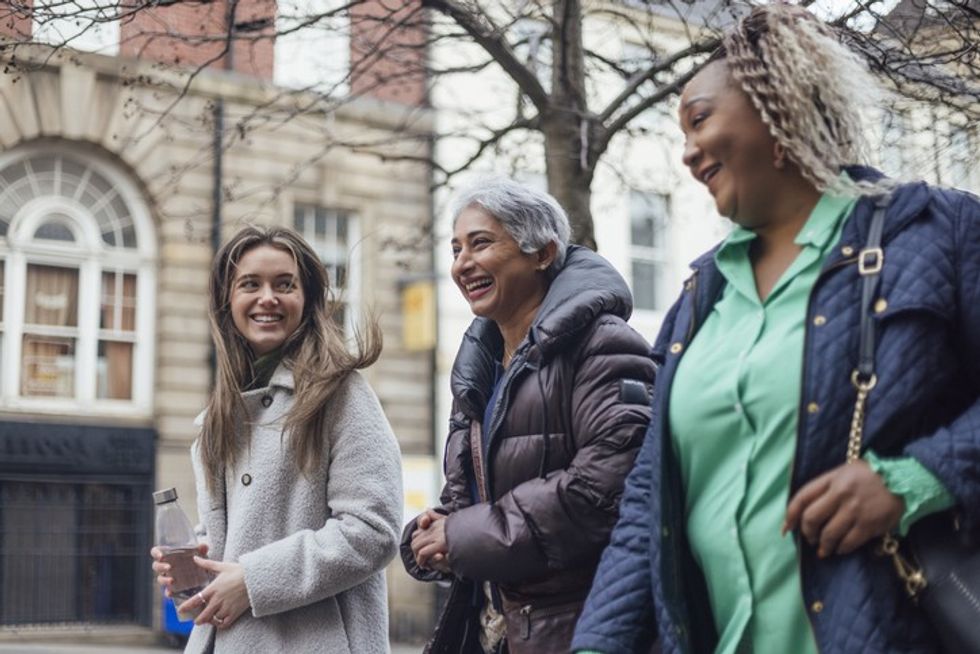For many women in the Asian community, the journey through perimenopause and menopause is still shrouded in silence, confusion, and, at times, shame. It’s often seen as something we just have to “put up with” quietly, as though struggling through it alone is a badge of honour. But the truth is, menopause is a universal transition - one every woman will experience in her lifetime - and it is time we start talking about it, especially within our cultural communities where silence often masks suffering.
We all go through it - so why don’t we talk about it?
Menopause doesn’t arrive overnight. For most women, it begins subtly during perimenopause, which can start as early as your late 30s or early 40s and last for several years. According to the NHS and the National Institute for Health and Care Excellence (NICE), over 30 recognised symptoms of perimenopause range from hot flushes and night sweats to anxiety, low mood, brain fog, and joint pain.
For me, it began with intense fatigue that no amount of rest could fix. I would forget words mid-sentence and find myself inexplicably tearful at times. At first, I thought I was just overworked or emotionally burnt out. Like many Asian women, I didn’t connect the dots. We’re raised to get on with things, to be strong, to not make a fuss. But this wasn’t strength - it was isolation.
The emotional toll of going it alone
The stigma around menopause in Asian cultures runs deep. It's not just seen as a health phase - it’s linked to ageing, invisibility, and even loss of femininity. No wonder so many women suffer in silence. The emotional weight of pretending everything’s fine while your body and mind are in turmoil is enormous. But here's what I’ve learnt: asking for help is not a weakness - it’s wisdom.
When I finally sought medical advice and connected with other women going through similar experiences, everything changed. I realised I wasn’t broken - I was evolving. And I didn’t have to go through it alone.
Getting the right help
There’s still a major knowledge gap in both the medical field and in our communities. Many GPs aren’t trained in menopause care, and cultural taboos can make it harder for us to speak up. But help is out there.
Start by tracking your symptoms (there are excellent apps like Balance), and don’t be afraid to advocate for yourself. The latest NICE guidelines support access to HRT and holistic care for those who need it. Lifestyle changes - like resistance training, stress reduction, and nutrition tailored to hormonal health - can also play a powerful role.
The power of community

What truly helped me was finding a circle of like-minded women - women who weren’t afraid to share their stories, to cry, to laugh, and to challenge the silence we’ve all inherited. There’s deep healing in the community. Whether it’s through local meet-ups, online support groups, or even a WhatsApp chat with a few trusted friends, having others who understand what you’re going through is transformative.
You deserve support
To any woman reading this: You are not alone, and you are not meant to do this alone. Don’t let cultural silence convince you that your struggle is something to be endured in private. Speak up. Reach out. Invest in your health. Surround yourself with people who see your worth and walk with you through this transition.
Perimenopause and menopause are not the end - they are an invitation to rise. To prioritise your well-being, to own your story, and to create the next chapter of your life with clarity, support, and strength.

(Kiran Singh is a lifestyle coach and menopause wellness coach. For more information about her work, you can visit Kiransinghuk.com)



















